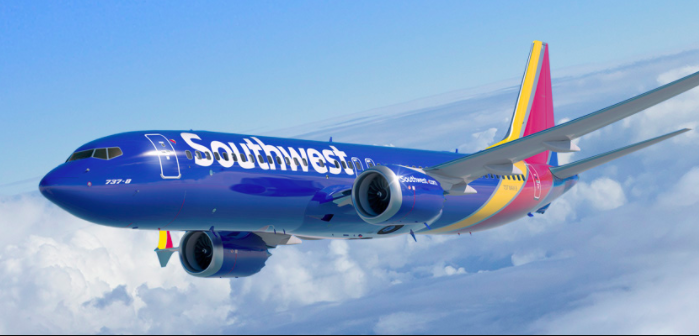Flying into turbulence: the US red tape that tangles up flights
Plane Talk: the Wright Amendment was wrong to stifle competition

Your support helps us to tell the story
From reproductive rights to climate change to Big Tech, The Independent is on the ground when the story is developing. Whether it's investigating the financials of Elon Musk's pro-Trump PAC or producing our latest documentary, 'The A Word', which shines a light on the American women fighting for reproductive rights, we know how important it is to parse out the facts from the messaging.
At such a critical moment in US history, we need reporters on the ground. Your donation allows us to keep sending journalists to speak to both sides of the story.
The Independent is trusted by Americans across the entire political spectrum. And unlike many other quality news outlets, we choose not to lock Americans out of our reporting and analysis with paywalls. We believe quality journalism should be available to everyone, paid for by those who can afford it.
Your support makes all the difference.John McCain, who died last week aged 81, was a well-respected US politician who stood unsuccessfully against Barack Obama in the 2008 presidential election.
The strength of feeling expressed about his death highlights a dearth of political leaders who command respect. Unlike many of his erstwhile colleagues in Congress, he was a qualified pilot – and had been shot down in the Vietnam War.
As an Arizona senator, McCain also became involved in civil aviation, in an intriguing and honourable fashion.
America was where airline deregulation began in the late 1970s, but there remain an absurd number of restrictions on the freedom to fly – such as the “DCA Perimeter Rule”.
DCA is the code for Reagan National Airport in Washington DC. Compared with the US capital’s international gateways, Dulles and Baltimore-Washington International, it is close and convenient. So anyone with any sense, be they a politician or a normal person, will choose DCA if they need to travel to or from the city centre.
But in 1966, when jet aircraft began operating at what was then Washington National, they could fly no further than 650 miles. Planes were allowed to fly to Atlanta or Chicago, but barely any further.
Twenty years later, the US Congress increased the perimeter to 1,250 miles – just enough to bring Dallas and Houston to the departure board, but not the Texas state capital, Austin. But the assembly in Washington is also empowered to issue “beyond-perimeter” exemptions that breach the 1,250-mile limit. From Colorado to California, politicians were under pressure from their electorates to win approval for flights to the capital’s premier airport. Las Vegas, Los Angeles, San Francisco and Seattle are among those that have succeeded.
As an Arizona senator, John McCain naturally campaigned for a link from Phoenix. When an opponent criticised him for seeking flights for his personal convenience, he vowed he would not take the flight. And when finally nonstop were allowed from his local airport, the Republican senator stubbornly continued to change planes in Texas or fly into Washington Dulles. Eventually he concluded “the statute of limitations had run out” and started using the American Airlines flight.
The flightpath took him slightly north of Dallas, location for the absurdly restrictive “Wright Amendment”. This is nothing to do with the pioneers of powered flight, Orville and Wilbur – indeed its purpose was stop flying, not start it.
The author of this piece of legislation, Jim Wright, was the Democrat congressman for the Texas city of Fort Worth. As in “Dallas-Fort Worth”, now one of America’s busiest airports. But in 1979, the young budget airline Southwest was seeking to expand from its hub at Love Field in Dallas. Mr Wright believed that competition could slow the growth of “DFW”. So he engineered a law that prohibited larger jet flights beyond Texas and its adjoining states: Arkansas, Louisiana, New Mexico and Oklahoma. Everywhere else was a no-fly zone.
In a UK context, that would be like insisting airlines could fly from Gatwick only to the UK, Ireland, the Netherlands, Belgium and France.
To tighten the noose still further, airlines were not allowed to offer connecting flights beyond the immediate neighbouring states, nor even to mention to prospective passengers the possibility that they could buy an onward ticket to their final destination.
A decade-long campaign by Southwest Airlines – which included a giant billboard on the roof of the carrier’s HQ reading "Wright is wrong" – succeeded in persuading politicians to repeal the amendment in 2014.
Within days, Southwest Airlines had launched routes from Love Field to New York, Los Angeles and – for the benefit of travelling politicians – Washington DC.
The following year, the man whose name was given to the no-fly rules died.
Politicians tempted to restrict the freedom to travel in pursuit of local votes should note that he was remembered in the Dallas News report on 6 May 2015 for just one thing: “Jim Wright of the Wright Amendment has died,” read the headline.
John McCain, in contrast, will be remembered for aeronautics and much more besides.
Join our commenting forum
Join thought-provoking conversations, follow other Independent readers and see their replies
Comments